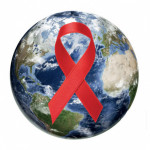ViiV Healthcare’s newly approved antiretroviral (ARV) regimen Juluca (dolutegravir/rilpivirine) performed well according to 100-week data in an ongoing trial investigating the effects of switching to the regimen.
Forty-eight week results from the replicate 148-week randomized open-label noninferiority SWORD 1 and 2 studies were presented at the 2017 Conference on Retroviruses and Opportunistic Infections (CROI) in Seattle and later published in The Lancet.
The Food and Drug Administration (FDA) approved Juluca as the first two-drug complete regimen for the treatment of HIV in November 2017.
The 100-week findings from SWORD 1 and 2 were presented at the International AIDS Conference in Amsterdam (AIDS 2018).
All the participants had an undetectable viral load for at least 12 months upon entry into the studies and were taking an integrase inhibitor–, non-nucleoside reverse transcriptase inhibitor (NNRTI)– or boosted protease inhibitor–based three- or four-drug ARV regimen.
Between the two studies, the participants were randomized to stay on their current regimen (477 people) or to switch to the components of Juluca (513 people), given as two individual tablets, which are marketed as Tivicay (dolutegravir) and Edurant (rilpivirine). Those in the “late switch” group who stayed on their initial regimen were then switched to Juluca at week 52.
Eighty-nine percent (456 of 513) of the participants who switched to Juluca at the study’s outset had a fully suppressed virus after 100 weeks of treatment. Thirteen people (2.5 percent) experienced virologic nonresponse, including six who were withdrawn from the study for this reason. Juluca failed in three participants who had mutations to their virus associated with NNRTI resistance, including one who had such mutations upon entering the study and then developed resistance to rilpivirine and was withdrawn from the study. None of the participants developed resistance to integrase inhibitors.
The 100-week results offered no new findings about Juluca’s safety compared with the 48-week findings. Thirty-four participants (7 percent) experienced adverse health events that led them to leave the study through the 100-week mark.
Ninety-three percent (444 of 447) of those in the late-switch group had a fully suppressed virus at the study’s 100-week point. Two participants (less than 1 percent) experienced virologic nonresponse prompting their withdrawal from the study. The safety effects of treatment among this group were comparable to those seen in the early-switch group throughout the 100 weeks of the trial. Thirty members of the early-switch group (6 percent) experienced serious adverse heath events and 15 members (3 percent) experienced adverse health events that led them to leave the study.
To read a press release about the study, click here.







Comments
Comments